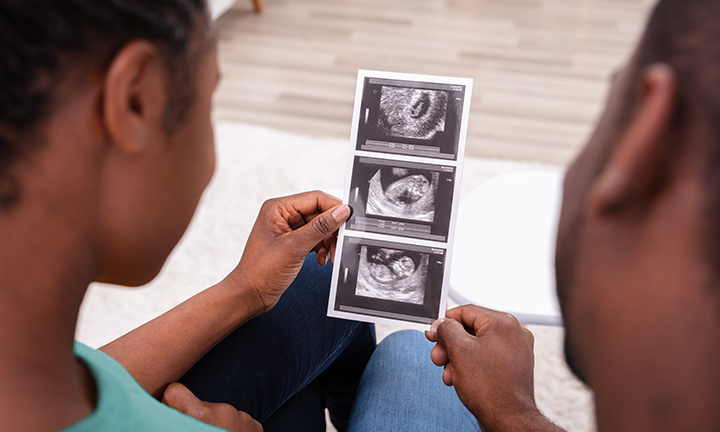
When to Tell People You Are Pregnant
Finding out you’re pregnant is a life-changing moment, and you likely can’t wait to share the news with everyone near and dear to you. Deciding when to announce your pregnancy is an entirely personal choice. However, there are a few things you may want to keep in mind before the big announcement. Read on to find out more.
When Is it ‘Best’ to Tell People You Are Pregnant?
Ultimately, there isn’t really a ‘best’ time to tell people you’re pregnant. You’re completely in charge of deciding when you feel comfortable to tell the world.
You may opt to tell your family and friends right away or wait a while to process the news yourself. Some of the following milestones may help you decide when is ‘best’ for you:
Fill in your info to get started:
This is a mandatory field.
Please select a due date!
Baby's Due Date*
Pros and Cons of Waiting to Announce Your Pregnancy
Sometimes, nothing beats a good list of pros and cons to help weigh up important decisions. If you’re not sure when to make the big announcement, perhaps the following points may help.
BABY NAME GENERATOR TOOL

Baby name generator
By gender:
By theme:
When to Announce Your Pregnancy to Your Partner
There is nothing quite like a baby to bring a couple together and take their relationship to the next level. Telling your partner is a magical step in the journey to having a baby. After the news is out, your partner will be able to support you through your pregnancy.
There is a lot to process when waiting for your little one to make an appearance. It’s normal for couples to experience some arguments every now and again during pregnancy, no matter how much they are looking forward to having the baby. From hormonal changes to getting ready for a major life change, there are completely understandable reasons for the odd tiff from time to time. Working together can help you both navigate this new and exciting stage in your relationship.
Becoming a dad also means taking on a new role and addressing new feelings for many men, particularly if it’s their first child. Once your partner is aware you are pregnant, they may like to help you in a number of ways:
Sometimes it can be hard to conceal the exciting news from your partner for very long. If you want some cute, creative and fun alternatives to simply blurting out the news, check out our article on ways to tell your partner you’re pregnant.
When to Announce Your Pregnancy to Close Friends and Immediate Family
Pregnancy is a special time for you and the people around you. Friends and family can offer lots of help in all sorts of ways, from helping to plan your baby shower to decorating your baby’s nursery. Talking to friends and family can be a great way to share experiences and ask for advice.
Sometimes, you may find that being pregnant means you will receive some unsolicited advice, and perhaps a bit of criticism here and there. While advice can be very helpful, criticism can really hurt. In certain scenarios, it can be a good idea to tell people that certain things are solely up to you and your partner to decide. After all, it is your pregnancy and your baby.
In this sense, being pregnant can take its toll on your mental health. Try not to compare your pregnancy to others’; everyone experiences pregnancy in different ways. What matters most is doing what feels right for you and your baby.
Tip: Remember there’s nothing wrong with setting boundaries. If it feels like a certain friend or relative is taking over, discuss this with them and let them know how you feel.
When to Announce Your Pregnancy to Your Employer
Legally, you don’t need to tell your employer you are pregnant until 15 weeks before the start of the week the baby is due. If you are unable to inform your employer at this point in time (due to not knowing you are pregnant, for example), your employer must be told as soon as possible.
Letting your employer know you’re pregnant will ensure you get the protection and benefits you are entitled to. It also grants you time off for antenatal appointments, which you would not be able to claim if your employer was not informed.
When you let your employer know you’re pregnant, they will carry out an assessment to establish any risks to you and your baby at work. If any risks are found to exist, like heavy lifting, exposure to toxic substances or long working hours, your employer is required to take reasonable steps to remove them.
You may be asked to complete different tasks or change your hours. Or, if your employer is not able to remove any risks, you might by suspended on full pay.
FAQS AT A GLANCE
You are free to announce your pregnancy whenever you want to. Around the 8 week mark you are likely to have your first midwife appointment. During this appointment, you will find out whether you are pregnant. So this could be a great time to share the news with close friends and family.
How we wrote this article
The information in this article is based on the expert advice found in trusted medical and government sources, such as the National Health Service (NHS). You can find a full list of sources used for this article below. The content on this page should not replace professional medical advice. Always consult medical professionals for full diagnosis and treatment.
Read more about Pregnancy
Related Articles
Join Pampers Club and get:









